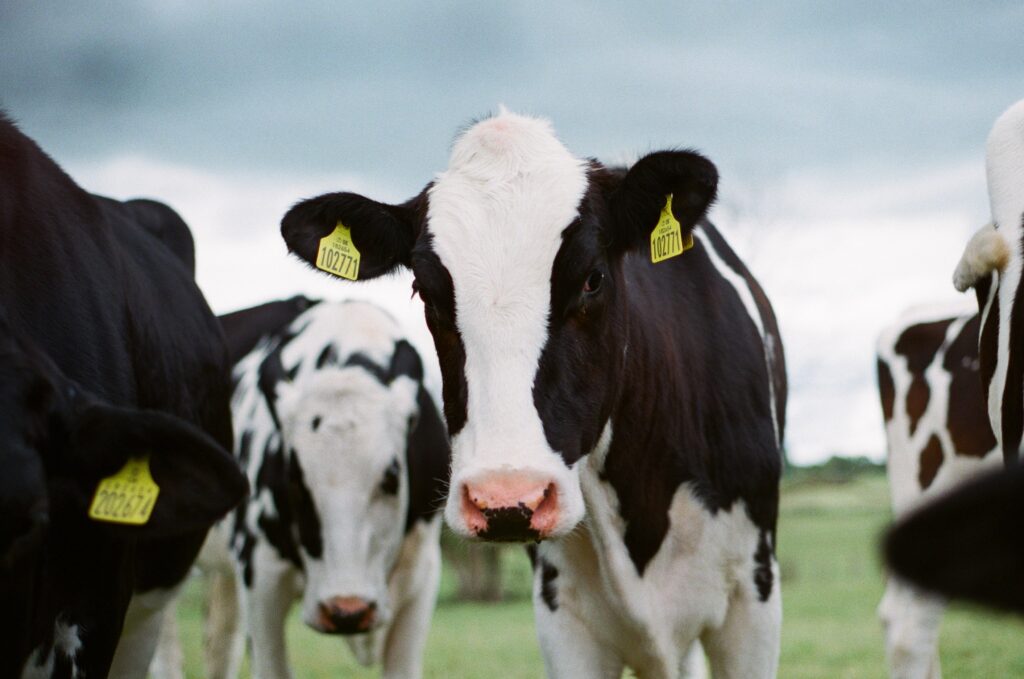
A high-level, international delegation of stakeholders from the worlds of farming and food production recently gathered at Queen’s University Belfast to discuss barriers, and potential solutions, to achieving Net Zero.
Senior representatives of organisations including the UN’s Food and Agriculture Organisation brainstormed the biggest challenges to decarbonisation in a two-day session organised by the Institute for Global Food Security (IGFS) and School of Biological Sciences (SBS) at Queen’s.
The session was outcomes-focussed, with a brief to develop an action plan to bridge some of the largest gaps between research, policy and society. In particular, the organisers, Professors John Gilliland and Nigel Scollan from IGFS and the School of Biological Sciences, were recommending an urgent need for a public-private agrifood partnership to develop an agreed framework for GHG emissions accountability – how we measure, report and verify the carbon footprint of farms and food systems.
The Net Zero workshop brought together a small group of influential decision-makers. UK-wide organisations taking part included the Food, Farming and Countryside Commission; the Agriculture and Horticulture Development Board; and the Department of Environment, Food and Rural Affairs (DEFRA).
Scientists from the universities of East Anglia and Reading were joined by colleagues from Thünen Institute of Market Analysis (Germany) and Wageningen (Netherlands) to share latest developments in research and innovation. Prof Jorgen Oleson, Head of Agroecology at Aarhus University (Denmark) provided a keynote lecture titled, ‘A Pathway to Carbon Neutral Agriculture in Denmark: Lessons Learned’.
Stakeholders from the island of Ireland taking part in the workshop included senior officials from DAERA and its ROI counterpart, DAFM; AFBI; AgriSearch; the Ulster Farmers’ Union; An Teagasc; and RSPB.
Professor of Practice for Agriculture and Sustainability at IGFS and SBS, John Gilliland, said the workshop was a follow-up to his Inaugural Lecture at Queen’s last May in which he publicly called for a public-private partnership to design a working model for carbon measurement.
“If you can’t measure change, you certainly can’t manage it,” he explained. “The path to Net Zero has to be practical, it has to be sound. It has to be based on credible science and evidence.
“Here in Northern Ireland, we can’t do it alone, we need to do it together with our neighbours – east-west, north-south – and this is why a high-level knowledge-exchange workshop such as this is imperative.”
Director of IGFS, Prof Nigel Scollan added: “There has been a surge in climate-friendly investment in world-class innovation and technology, to help achieve the core target of Net Zero.
“Despite such developments, the current trajectory is challenging. While science continues to respond rapidly, the wider barriers to achieving Net Zero need urgent examination.
“We need appropriate regulatory frameworks and effective policy but we also need to drive behaviour change in the agrifood industry and in society. We discussed all these factors with a view to timely, practical actions.”
The event was supported by funding from the Queen’s University Belfast Engaged Research Seed Fund.
Notes for Editors
| Notes for Editors | Taken from the Queen’s University Belfast website. Queen’s University Belfast published this article here on 2 May 2023. Photo by Jakob Cotton on Unsplash |
| Reference | https://www.qub.ac.uk/schools/SchoolofBiologicalSciences/News/NetZeroworkshop.html?utm_source=twitter&utm_medium=organic_social&utm_campaign=CommsMHLS&utm_content=news_story |
| Published | Tuesday May 2nd, 2023 |





















































